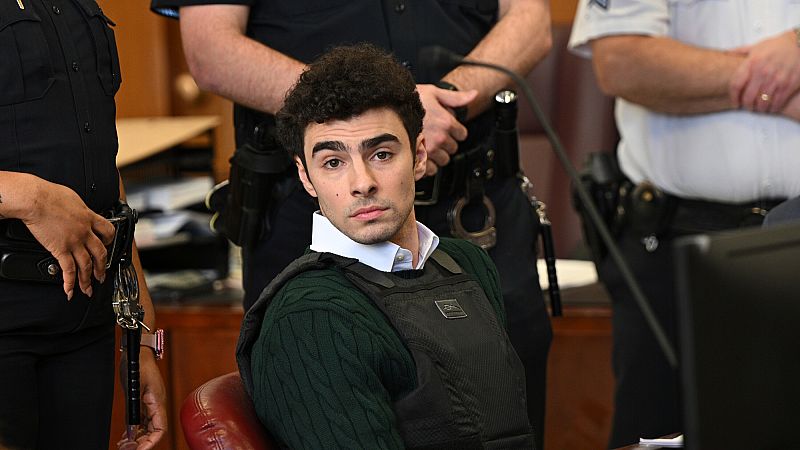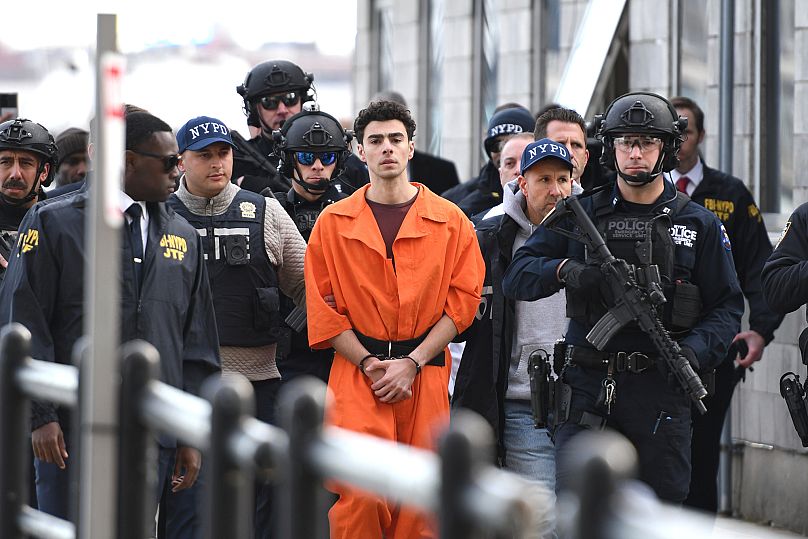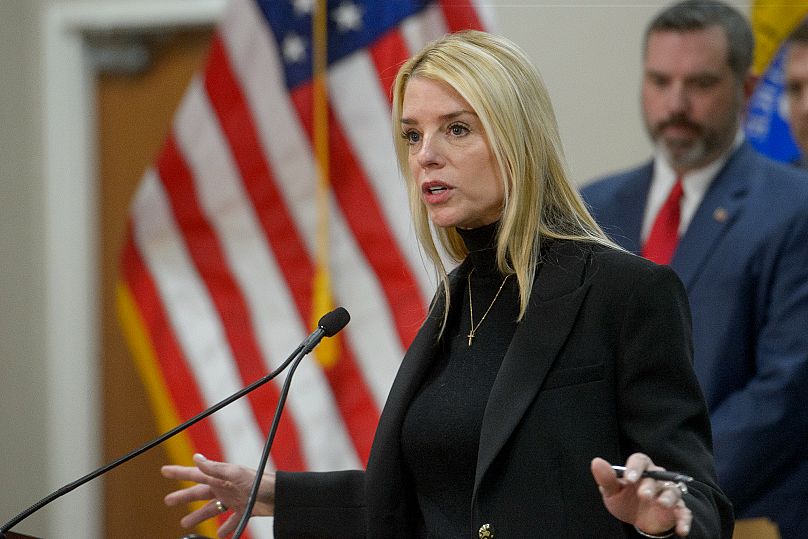Prosecutors to seek death penalty for Luigi Mangione in health insurance CEO shooting case

US Attorney General Pam Bondi has said she has directed federal prosecutors to seek the death penalty against Luigi Mangione, the man accused of gunning down UnitedHealthcare CEO Brian Thompson outside a Manhattan hotel on 4 December.
Mangione faces separate federal and state murder charges for the killing.
The federal charges include a charge of murder through use of a firearm, which carries the possibility of the death penalty.
Mangione was arrested in a McDonald's in Pennsylvania after a five-day manhunt, carrying a gun that matched the one used in the shooting and a fake ID, police said.
He also was carrying a notebook expressing hostility toward the health insurance industry and especially wealthy executives, federal prosecutors said.
Mangione was extradited from Pennsylvania and quickly rushed to New York, where he was led away from a helicopter by heavily armed police officers and New York City Mayor Eric Adams.
Adams said he was hoping to send a message to the suspect: "I wanted to look him in the eye and say you carried out this terroristic act in my city — the city that the people of New York love," the mayor told a local TV station.
"I wanted to be there to show the symbolism of that."
An Ivy League graduate from a prominent Maryland family, Mangione appeared to have isolated himself in the months leading up to the shooting.
He posted frequently in online forums about his struggles with back pain.
UnitedHealthcare is the largest health insurer in the US, but the company said Mangione was never a client.
Thompson, a married father of two high-schoolers, had worked at the giant UnitedHealth Group for 20 years and became CEO of its insurance arm in 2021.
The killing prompted many Americans to voice their resentment at US health insurers, with Mangione serving as a stand-in for frustrations over coverage denials and hefty medical bills.
It also sent shockwaves through the corporate world, rattling executives who said they had received a spike in death threats following the incident.
Today



